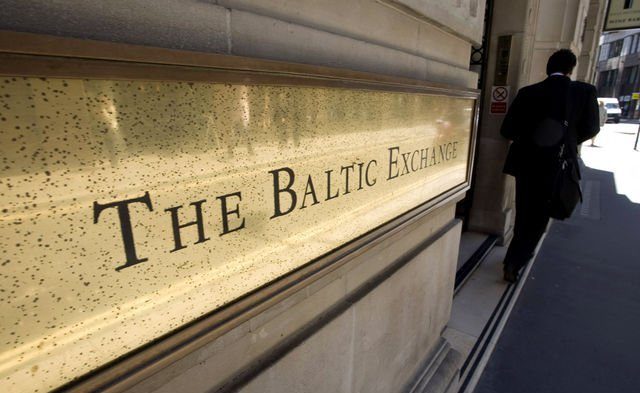SGX and the Baltic: a passing of the baton

Living in China for much of this century I always recall how much the locals liked Singaporean delegations coming to call by. The red carpet would be rolled-out and lavish banquets prepared whenever a business party from the Lion Republic popped up to the mainland.
Why? Because invariably this incredibly rich little enclave (where around one in 35 citizens are millionaires) would pay over the odds for any concession it could lay its hands on – whether a terminal, a shipyard, or indeed a newbuild contract.
This preamble brings me to today’s big Singaporean shipping acquisition news, namely the takeover by the Singapore Exchange (SGX) of the venerable 272-year-old Baltic Exchange, London’s hub for freight data and deals.
The tabled bid clocks in at $103.5m. For that money, just to put things in perspective, our friends at VesselsValue.com tell me I could buy (as if!) three 2015-built capes, or seven 2011-built panamax bulkers or even fourteen 10-year-old supramaxes.
SGX’s offer was labelled “rather expensive” by one Singaporean analyst this week.
“The purchase consideration works out to about three times the Baltic Exchange’s book value of £29.95m ($38.5m),” said DBS analyst Ling Lee Keng.
“On a P/E basis, it seems rather expensive as it works out to over 50x FY2015 earnings, as compared to SGX’s 23x FY16 and 21x FY17 earnings.”
Ling also hit out at what the Baltic will actually bring to SGX’s bottom line. The London institution managed a net profit last year of £1.34m on revenues of £6m, paltry in comparison to SGX’s S$349m ($260m) net profit.
SGX’s offer will be put forward to the Baltic’s 380 shareholders next month, who, from what I can understand from speaking with a few leading names, are rubbing their hands with glee, much like Chinese port authorities used to do a decade back when Singaporeans touched down to hammer out expensive terminal concessions.
What exactly is SGX getting from the deal? First up, make no mistake – prime, prime real estate – 38 St Mary Axe in the City of London, Inchcape’s former HQ, is about as flash as it gets in the UK’s business hub. It was valued at £16m in 2013, a figure two property specialists tell me is now nearer £20m.
One UK property site gushes of the Baltic: “Combining tradition with contemporary hospitality, this beautiful 1923-built building boasts one of London’s finest board rooms, conferencing centre, private meeting rooms, bar and restaurant.”
That’s all fine and well, let’s hope they get Tiger Beer on tap and some decent chicken rice on the menu – but how then to value or justify the more than £58m that makes up the rest of the SGX bid?
SGX maintains the bid is designed to boost its freight derivatives business and stretch its working hours into a European timezone.
However, on the face of it, SGX will be essentially getting some data on the dry and wet markets – intellectual property that comes from brokers who also make up the shareholders. It went to great pains to secure the agreements which deliver that and in the process made big concessions to both physical and paper brokers who wanted assurances that SGX would not be an ‘anti-competitive’ force in the market.
Some are privately congratulating themselves for wringing a better deal out of the buyer than they expected.
But who can SGX sell this data to? In today’s crowded shipping data scene that is debatable. The fact is, the Baltic’s once unique position in world shipping is no longer the case – every Tom, Dick and Zhang have their own equivalent data metrics these days.
A survey carried on this site two months ago showed that 62% of the more than 500 respondents felt the Baltic Exchange was not as relevant today as it was 20 years ago. “But not everyone knows that so it’s a good time to sell,” one voter rather cheekily noted.
Indeed it is, especially post-Brexit; the $103.5m is eye-popping. 50 times FY 2015 earnings? If only someone would offer me that for my company!
However, let’s step back and look at the bigger picture.
Wealthy Singapore, intent on being the world’s top maritime hub, is just putting London out of business as a so-called shipping centre and for that the purchase price, you could argue, looks like good value.
It’s not what it is acquiring, per se, it is where and whom it is taking control from – in Olympic terminology, a passing of the baton, if you like.

I predict that this excellent article will prove to resemble the British Southern Railway’s third rail on days when the Rail Maritime and Transport Union are not on strike.
Bless you, sir!